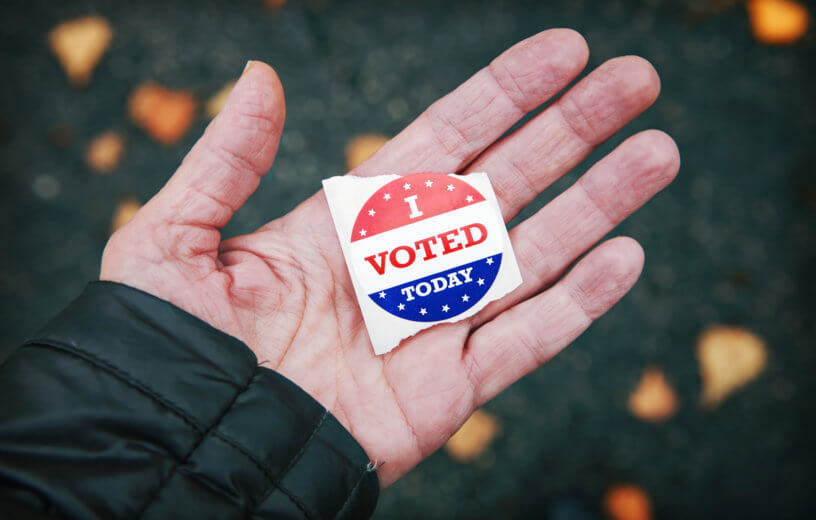SANTA FE, N.M. — Election polls are gaining a reputation for being extremely unreliable over the last few years. With pollsters wondering why voters aren’t giving an accurate picture of their political mindset, a new study finds it might be better to look at who voters hang out with. Researchers at the Santa Fe Institute say social circles appear to be a great predictor of how individuals will behave when they enter the voting booth.
Researchers discovered they can gather accurate information about trends and groups by asking someone who their social circles vote for. They add this question paints a clearer picture than asking an individual about their own voting intentions.
“We realized that if we ask a national sample of people about who their friends are going to vote for, we get more accurate predictions than if we ask them who they’re going to vote for,” says corresponding author Professor Mirta Galesic in a university release.
“We found that people are actually pretty good at estimating the beliefs of people around them.”
Study authors also found that individuals have become good at choosing their circle, which they call “social sensing.”
“I really hope human social sensing will be included in the standard social science toolbox, because I think it can be a very useful strategy for predicting and modeling societal trends,” Prof. Galesic adds.
What makes polling individual voters so unreliable?
The team says people selected to represent a group can help identify emerging trends. They can also predict political and health-related developments. Researchers developed the approach with the results of recently stunning election outcomes in mind. Most notably, researchers cited the 2016 presidential election, which had polls suggesting Hillary Clinton would easily defeat the eventual president, Donald Trump.
Researchers have multiple reasons to explain the unreliability of polls, including hard to reach or anonymous voters. There are others who do not respond to surveys, some who are embarrassed to report their voting intentions, and people who change their minds after polling.
Study authors say they hope to prove that our estimations of what our family and friends believe are often accurate. The approach can also help to create interventions which could steer social systems in different directions. They suggest this could happen after a major event like a natural disaster or mass shooting.
The findings appear in the journal Nature.
SWNS writer Olivia Devereux-Evans contributed to this report.
